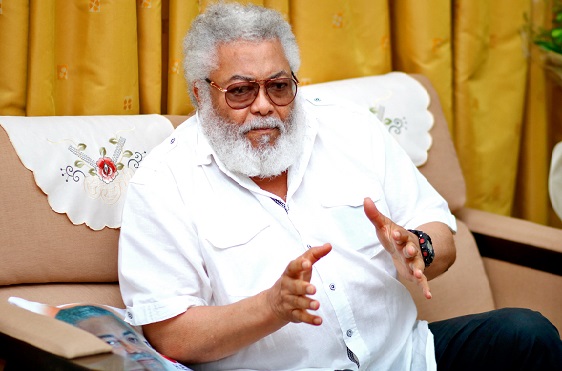Three years ago, Ghana was hit by the loss of one of its most charismatic leaders.
President Jerry John Rawlings, who was a dynamic leader strongly involved in the history of the country had died on November 12, 2020, at the Korle Bu Teaching Hospital following a brief illness.
Conversations about Rawlings’ important contributions had echoed over the years, as many thought back on his legacy. He was a leader best known to have guided Ghana through economic reforms, ushered in democracy, and been a key figure in regional peace initiatives.
Speaking to Univers News, students had shared their memories of the charismatic figure. Their voices had echoed the sentiments of a generation touched by Rawlings’ leadership. Some had spoken of his economic reforms that had stabilized the country.
“So, one thing I loved about ex-president JJ Rawlings was his way of leadership. Even though everyone saw it to be a very autocratic style of leadership rule, I saw it to be something that was great because he led us in a very principled way, and that’s one thing I loved about him.”
“One thing I remember about the late ex-president, Jerry John Rawlings, is that he was a disciplined man and he was so principled. And because of that, those times, he instilled discipline in most Ghanaians even though they saw that to be a very bad thing, but then he did a very good job at that; I’ll always remember him for that.”
Three years after his passing, Jerry John Rawlings’ influence had remained significant. His legacy had served as a point of reflection for Ghanaians as they had navigated the challenges and opportunities of the present, inspired by the indomitable spirit of a leader who had left an indelible mark on the nation.
As we remembered Jerry John Rawlings on this anniversary, the echoes of his legacy had continued to resonate, shaping the narrative of a nation that would forever hold him in remembrance.
A brief background on his personality
Born on 22nd June, 1947 in Accra, Jerry John Rawlings pursued a military career where he joined the Air force in 1969.
Rawlings first gained national prominence through the June 4, 1979, uprising, where he led a group of junior military officers in a coup to protest against corruption and deteriorating economic conditions.
In December 1981, Rawlings successfully led a second coup, ousting the civilian government. He justified these actions by expressing his commitment to rooting out corruption and restoring discipline. Rawlings ruled as a military leader until 1992.
One of Rawlings’ most significant achievements was overseeing Ghana’s transition from military rule to multi-party democracy. In 1992, he became the elected President after winning the presidential elections. Rawlings was re-elected in 1996 and served until 2001.
Rawlings was known for his strong stance against corruption. His administration implemented measures to combat corruption and improve governance. The National Commission for Democracy was established to investigate and prosecute corrupt practices.
Rawlings was involved in diplomatic initiatives to resolve conflicts in Liberia and Sierra Leone, contributing to stability in the West African region.
–
Story by: Zaghe Amey Mwinsongma | univers.ug.edu.gh

